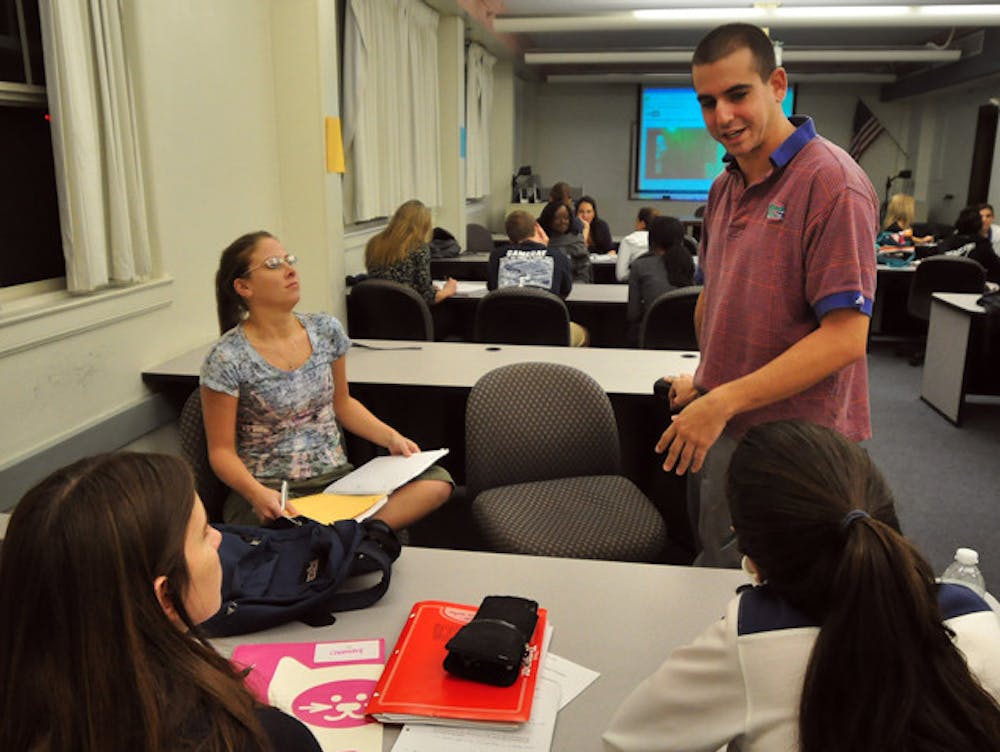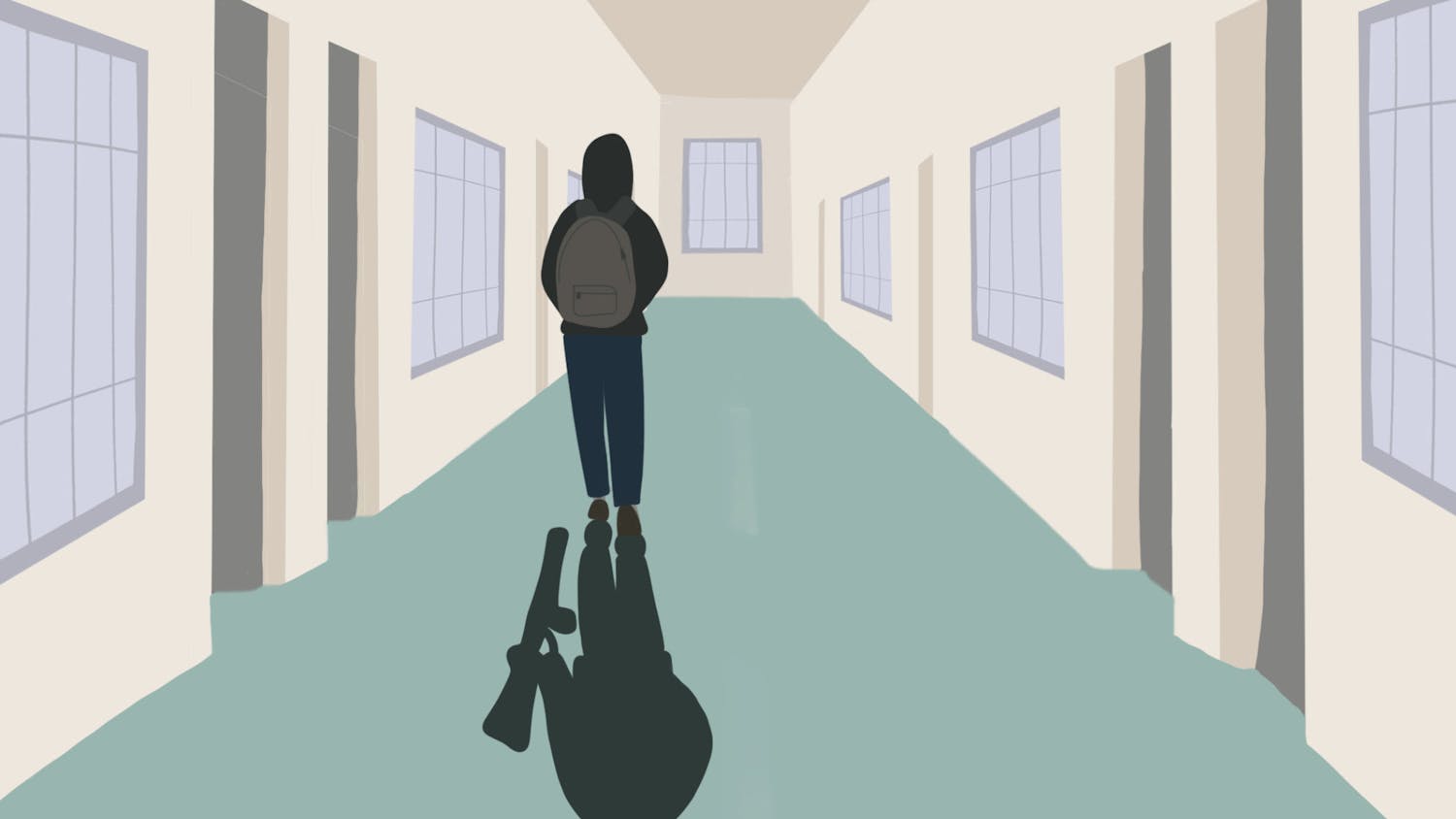Kaitlynn Floyd has covered both sides of the note card in small print. She only gets one, so she has to make it count. It’s hard to steady her hands with her heart pumping like a piston.
She fills the 3-by-5 inch rectangle with six minutes of main ideas, sources and quotes.
For Floyd, 19, a sophomore public relations major, speaking in front of crowds is not new. In high school, she participated for three years in a speakers competition and, as senior class president, delivered a handful of speeches.
But she still gets nervous.
At 6 p.m. Wednesday, Floyd joins her Introduction to Public Speaking classmates. This week’s topic: How do you get over an irrational fear?
It is David Beckman’s job to provide an answer. Beckman is a 28-year-old adjunct instructor who spends a large chunk of his week teaching 75 students the art of public speaking.
As an undergrad at UF, he starred on the debate team. But Beckman understands that almost all of his students are third- and fourth-year medical majors fulfilling a graduation requirement, and most of them would rather perform an appendectomy blindfolded than get in front of a crowd and speak.
He knows how his students show fear.
Fear, Beckman says, appears in body gestures. Students interlock their hands, as if folded under a baby or in prayer. Some stand cross-legged. Others shuffle away from the audience, an unconscious retreat.
Getting over the fear is a matter of repetition, Beckman says. “The more you speak, the more you realize nothing bad is ever going to happen to you.”
For some, public speaking is a common fear, but everyone brings something to the lectern. A girl who sits in the front of the classroom asks a lot of questions, which makes some people mad because they want to leave as soon as possible. Some students act like they don’t care when they get up to speak, which makes Beckman mad because he can see lengthy preparation in their outlines.
Beckman himself used to speak in a flat, wooden tone. He sounded robotic, apathetic. But the job market is competitive, he says. Graduating students must be dynamic.
Floyd doesn’t worry much about dynamism. If it’s an important speech, she just wants to make it to the podium without throwing up.
As she lets the class know “How to Get Published,” she shifts her weight from leg to leg. Her hands sweep wide arcs. The pitch of her voice travels up, then down, never quite finding middle ground, yet sweet and pleasant. She begins most sentences with “so” — as in, “So the next thing you are going to want to do…”
She hates when she trips over words because it makes her lose focus. She must concentrate on speaking and thinking of what to say next, simultaneously. The first half of her speech is marked by a shortness of breath.
As Floyd settles into the material, her voice steadies. Time is an ally. Her gestures become purposeful, her smiles genuine. She’s going to make it through. At the end, she breathes a faint “thanks.”
After Floyd, a few more students plow through “How to Make Brownies” and “How to Make Trifle” before returning to their seats and collapsing.
Beckman is pleased — he sees improvement. Each Wednesday night is a step forward — university-mandated, but a step nonetheless — toward a lifetime of class participation and job interviews, board meetings, conventions, client calls and patient consultations, wedding toasts, baptisms and eulogies.
They have the tools, his young orators; They’re working on the confidence. They can deliver a masterpiece with only a few days notice.
Beckman stands to announce next week’s assignment: impromptu speeches. Random topics. No preparation. Just pure, extemporaneous talking.
Once again, Floyd’s heart begins to accelerate.






